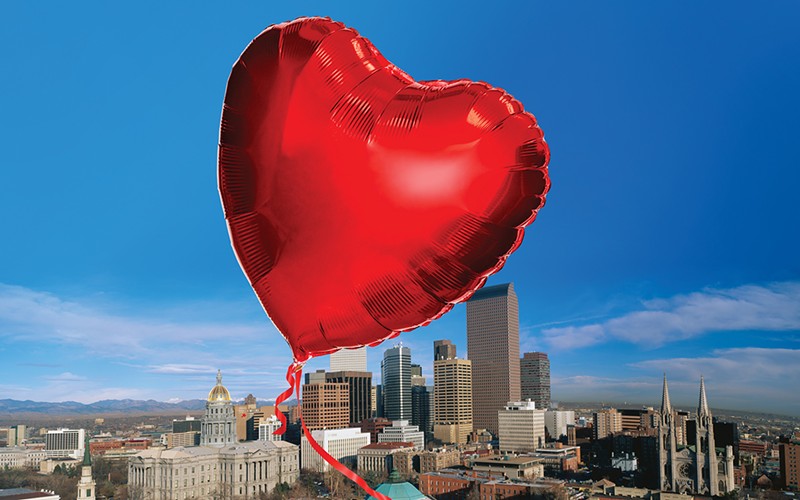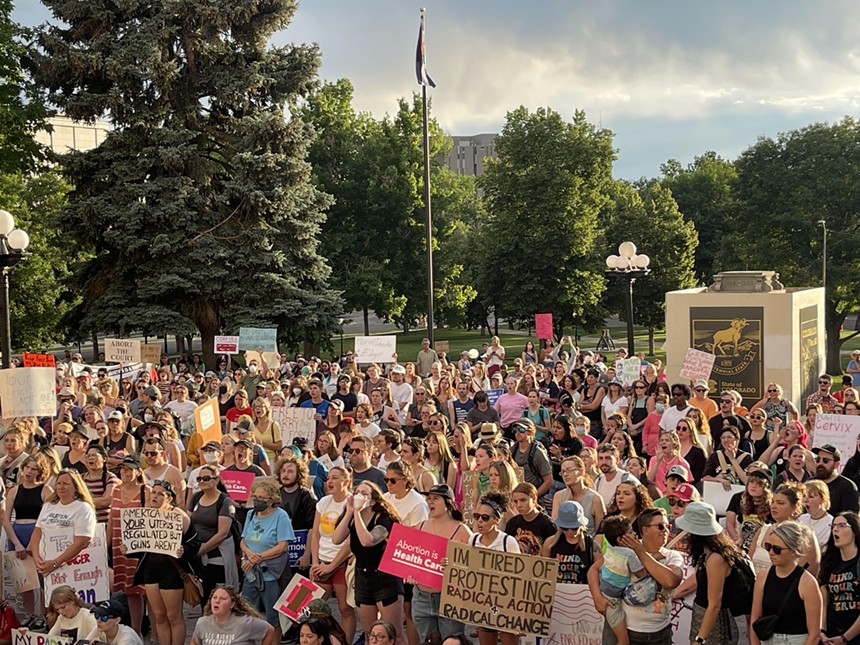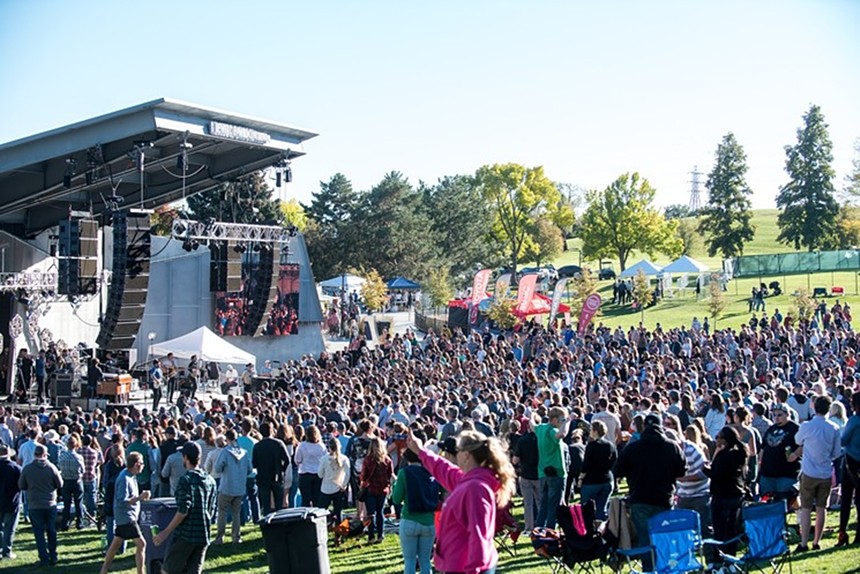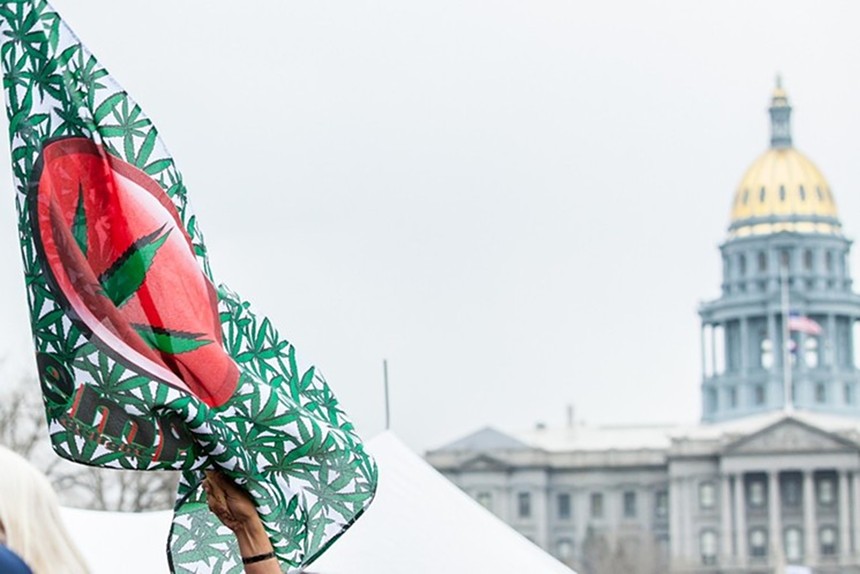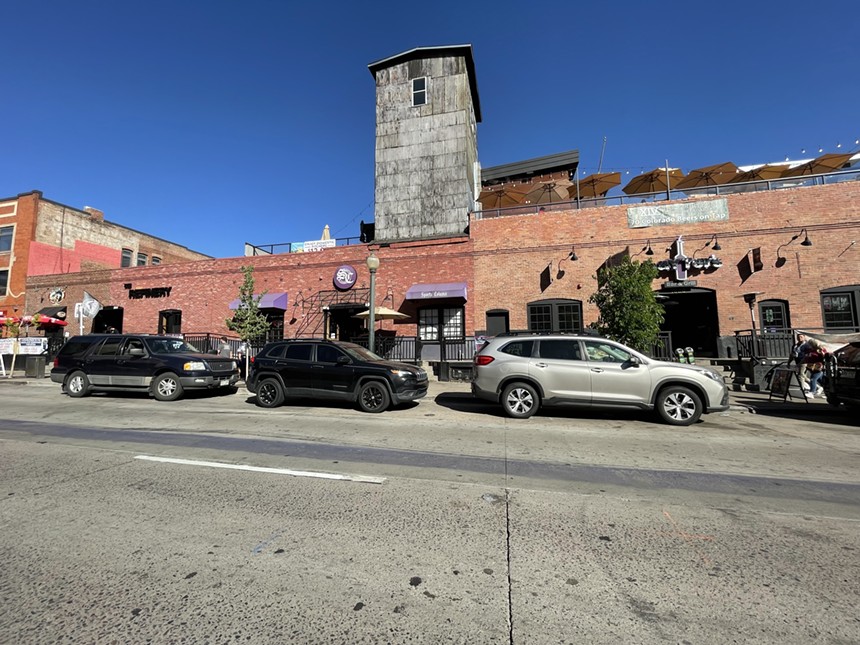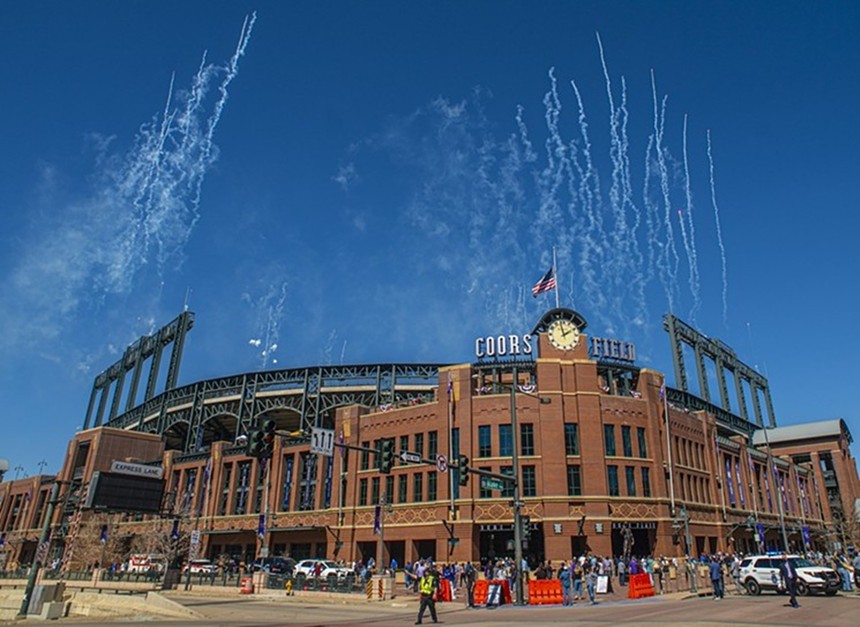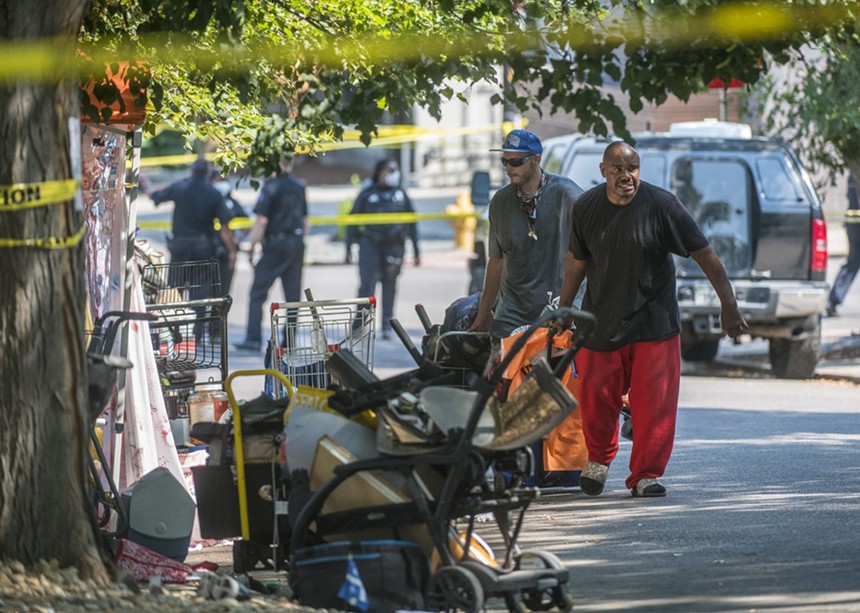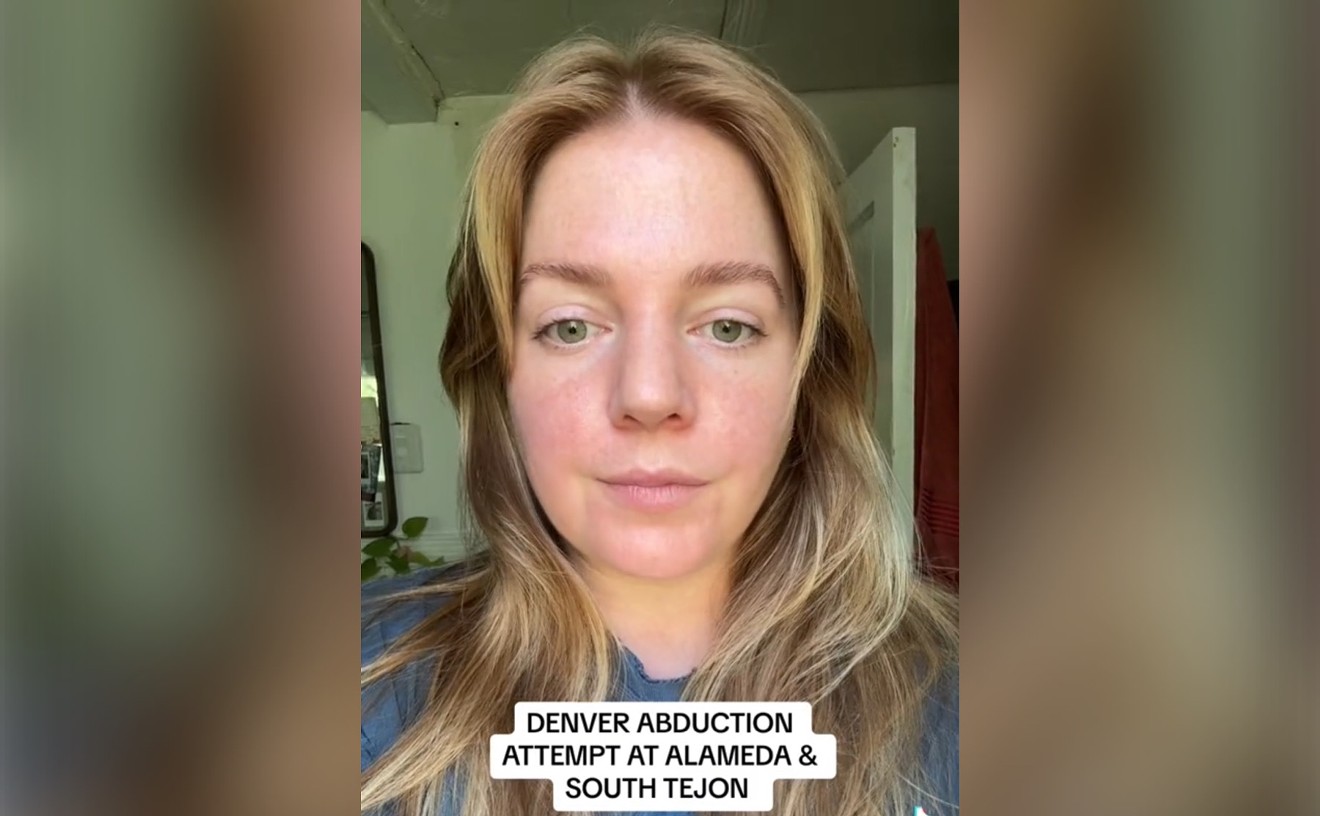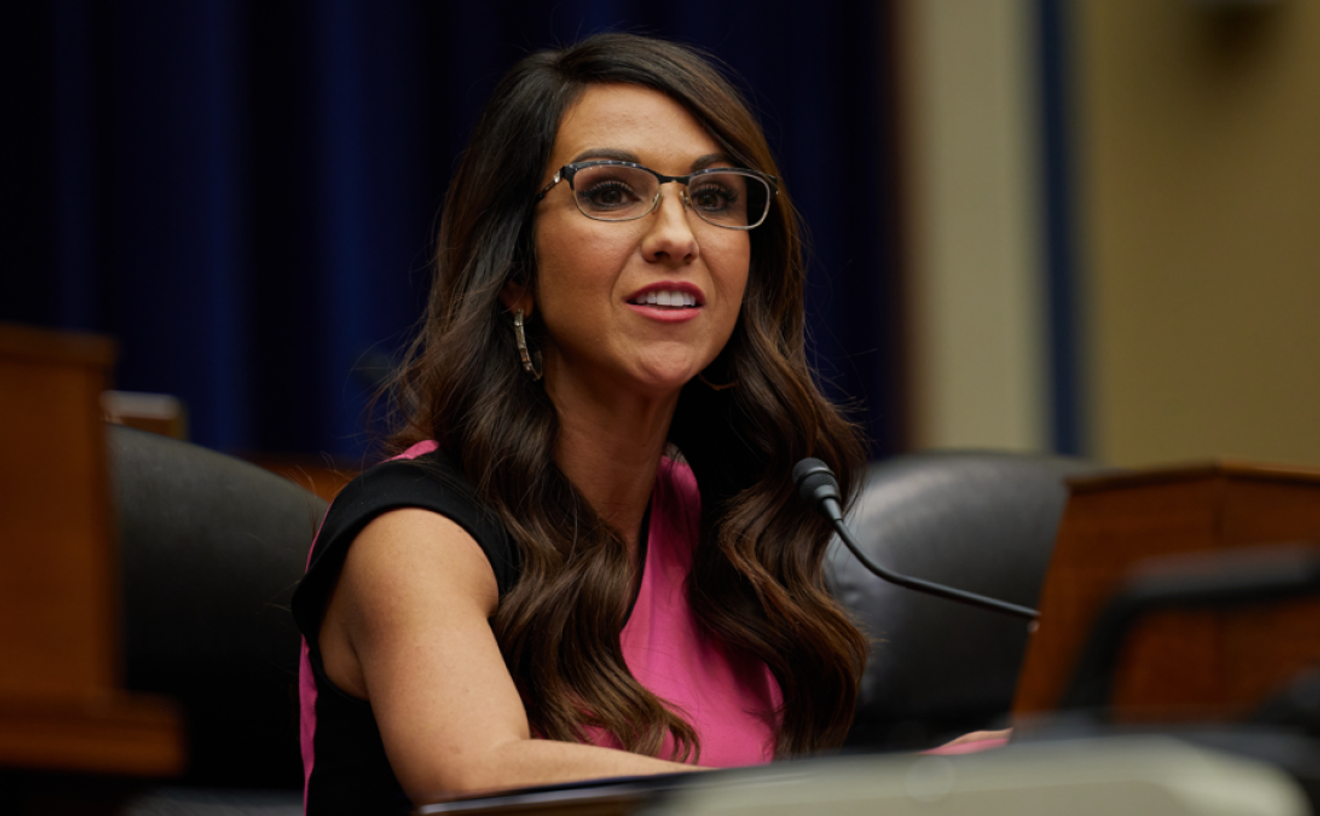The elevated spirits that once marked the Mile High City have fallen flat.
Denver has lost its mojo.
This is a sad comedown for a place that ten years ago was considered the coolest city in the country. Parsing numbers from the U.S. Census Bureau’s American Community Survey, the Brookings Institution determined that from 2008 to 2010, even as the hopes for a quick comeback from that recession faded, young adults between the ages of 25 and 34 were high on Denver — and proved it by coming here at an unprecedented rate, with a per capita surge unequaled by any other city. “To the extent that they are moving at all,” said demographer William Frey, “young adults are headed to metro areas which are known to have a certain vibe — college towns, high-tech centers and so called ‘cool cities.’”
And in November 2011, he declared that Denver was the coolest of them all. But since then, we’ve gone cold. Very cold.
How can Denver get its mojo back? That’s a question we’ve been exploring this summer, chatting with folks we encounter around town, including downtown (and yes, people are going downtown), as we catalogue this city’s considerable assets and also come up with ways that Denver can definitely improve. We’ll be rolling out suggestions through the summer. For now, our short list:
FIVE REASONS TO LOVE DENVER NOW
Choosing Choice
In 1967, Colorado became the first state in the country to guarantee a woman’s right to an abortion. The late Richard Lamm was a brand-new Democratic legislator representing a largely Catholic district when he brought up the hot topic in a then-Republican-controlled Colorado Legislature. With the bill that Lamm pushed through, an abortion still required the consent of a woman’s parents or spouse and a three-doctor panel — but for the first time, the procedure could be done safely and legally in this country, right here in Colorado. After Governor John Love signed the bill into law, Time magazine featured Lamm in a story on hot-button political issues, and he testified in a half-dozen states that were considering similar legislation, including New York. “I thought I was committing political suicide,” he recalled a few years ago. “But I was a symbol of someone who touched fire and survived.”
Not only survived, but was elected governor of Colorado seven years later. And this state has continued to lead the country, with the legislature passing the Reproductive Health Equity Act in the 2022 session, codifying a person’s fundamental right to make reproductive health-care decisions free from government interference. Governor Jared Polis not only signed that bill into law, but after the U.S. Supreme Court’s decision knocking out Roe v. Wade and fifty years of progress, he solidified Colorado’s stance with his executive order further strengthening abortion access in Colorado...for everyone. — Patricia Calhoun

RedLine's Louise Martorano has been a champion of the arts through the pandemic.
RedLine Contemporary Art
Back when all those millennials were flooding Denver, one of the things drawing them here was the city’s reputation as a place where artists and entrepreneurs could thrive. Author/big thinker Richard Florida had labeled the metro area one of the top creative spots in the country, an honor that John Hickenlooper used to promote the city that had just elected him mayor. Fifteen years before, he’d been one of those entrepreneurial adventurers — an unemployed geologist who joined with other visionaries to found the town’s first brewpub, the Wynkoop Brewing Co. — and seven years later, he was governor of Colorado.
Although many of these artistic adventurers created strictly DIY careers, cultural organizations in the metro region had a distinct and nationally unique advantage: the Scientific and Cultural Facilities District, which voters first approved in 1988 and kept approving in the decades that followed, taxing themselves 0.1 percent to support the arts. In 2021, that added up to $75 million at a time when cultural organizations really needed it. Also stepping up during the pandemic was Colorado Creative Industries, which pushed the Colorado Legislature for more funding, and RedLine Contemporary Art Center, which added to its own cultural offerings by coordinating grants and other help for artists in need.
The pandemic didn’t prevent the opening of Meow Wolf Denver’s Convergence Station or a flood of other immersive efforts, and even David Byrne’s Theater of the Mind is off pause, set for an August 31 debut through the Denver Center for the Performing Arts’ Off-Center. It will still be around in November when the Denver Immersive Gathering celebrates the scene and what Charlie Miller, Off-Center curator and executive director, calls “one of the top places for immersive art in the country.”
Now if Denver proper would just get as creative as neighboring Lakewood, which has become a new cultural hub for the metro area with its impressive support of local artists. And Casa Bonita has yet to reopen! Patricia Calhoun and Emily Ferguson
High Notes
While the music scene, too, suffered during the pandemic, the beat goes on at legendary outdoor venues old and new. Relative newcomer Levitt Pavilion Denver will mark the fifth anniversary of its free summer concert series on Thursday, July 21. A partnership between the Levitt Foundation, Denver Parks and Recreation and the nonprofit Friends of Levitt Pavilion Denver, it opened with the goal of presenting fifty free concerts a year, a gift to the city that has created countless memories. When COVID hit, Levitt moved its concerts online, offering a virtual series called Levitt in Your Living Room. In the meantime, it upgraded its physical sound system, added another LED screen to its stage and came up with a 2022 program that exceeded its promise of fifty free concerts, with one additional show this year.
And then there’s Red Rocks Amphitheatre, which celebrated its eightieth anniversary in 2021. This iconic venue isn’t just synonymous with Colorado’s music scene; it’s synonymous with Colorado. Just about every musician who’s been booked here proclaims it their favorite, with String Cheese Incident’s Kyle Hollingsworth noting that one of the most interesting parts of performing here is that “you have to play by Red Rocks’ rules.” Wind, snow, blistering heat, sometimes even rain — whatever the weather, bands are honored just to get up on the stage. And what bands! The Beatles were here in 1964 (the show didn’t sell out), the film Under a Blood Red Sky documented U2’s legendary 1983 performance, and local favorites like String Cheese continue to pack the place. While Colorado Music Hall of Fame displays in the Trading Post document the relatively recent past, you can see evidence of far more ancient visitors along the trails, including the forty-foot fossil of a plesiosaur. — Emily Ferguson
Pulling Up Steaks
At one time, the only recognition for Colorado’s dining scene went to Aspen and Boulder, with restaurants like Frasca raking in accolades. But over the past fifteen years, Denver has risen in the national ranks as a dining and drinking destination. The pandemic threatened to call a halt to that momentum — but instead, the challenges of the past two and a half years reignited the spirit of Denver’s frontier past as a place where new beginnings are possible. Chef-turned-restaurateurs Jessica Richter and Adam Branz of Split Lip parlayed a pandemic pop-up into an award-winning venture. Allison Declercq, who moved to Denver from California in 2020, began doing home delivery of bread baked in her wood-fired oven, and now has a vibrant outdoor setup called Funky Flame in Sunnyside that serves oysters, pizza and more. Aaron Gonerway started Plates by the Pound in his house, and from there it’s grown to one of the city’s most sought-after plates of barbecue. And every farmers’ market is jam-packed with food entrepreneurs slinging everything from sauces and samosas to breakfast sandwiches and ice cream.
As icing on the cake, industry pros who stuck with it through all the ups and downs of owning a restaurant during one of the most challenging times in history are finally getting moments of recognition. Nine years ago, Jennifer Jasinski became the first Denver chef to win a regional James Beard Best Chef Award; this year, all of the finalists were from Colorado, with three from Denver. And after Annette owner Caroline Glover was named Best Chef, Mountain at the 2022 James Beard Awards in Chicago, she flew back to Denver the very next morning to open up her restaurant for hungry fans. The creativity of Denver’s restaurant scene is not only making a comeback, it’s stronger than ever. — Molly Martin
Joint Custody
With recreational cannabis legal in Colorado for nearly a decade and eighteen more states joining the fun since then, it’s easy to forget how ballsy this state was to approve Amendment 64. Someone had to be first, though, and Denver gave Coloradans the cojones they needed to throw that middle finger up to the feds. Now a marijuana mecca, Denver had made the state’s first big step toward legal cannabis in 2005, when voters approved local cannabis decriminalization — the first such measure passed by a major city in the United States. The city’s medical marijuana scene blew up shortly after, leading Denver toward becoming the most evolved legal marijuana market in the country, and perhaps the world.
More than half of the U.S. still needs to wait on a street plug while risking arrest; all we need to do is walk down the street and stand in line. As your cousin in New York or the old college friend in Arizona gush over their first time in a legal pot shop, we strut in as if it’s no more important than a weekly run to the grocery store. We don’t need to sneak off at parties to light up or hide the ashtray any time there’s a random knock on the door, and comedians have finally found other things to joke about when they visit. That’s called quiet confidence, the truest form of marijuana mojo. And it only comes from experience. — Thomas Mitchell
FIVE WAYS WE COULD LOVE DENVER MORE
Doing It in Public
While Colorado deserves a full glass of praise for being the first state to legalize the plant, you might spit half of it out upon learning how few places there are where you can actually consume cannabis in Denver. There are over 200 legal pot shops within the city, yet the number of licensed places to smoke weed here can be counted on one hand. We’d like to say it wasn’t always that way, but that would be changing history.
The vast majority of cannabis-friendly events and venues in Colorado have been unlicensed and private (or pretending to be) since the state’s voters legalized pot in late 2012. That unregulated approach enabled looser restrictions and large-scale events like the High Times Cannabis Cup — but it also led to regular visits from the police and a zero-tolerance approach from state officials toward cannabis product sampling.
The State of Colorado and City of Denver have since created permit systems to allow cannabis hospitality at venues, but the tight rules and location restrictions have kept Denver virtually barren while enabling the city to further crack down on underground cannabis events. Just one hotel and two lounges are now licensed for cannabis use within the City of Denver, and only one establishment, the Coffee Joint, is currently open to the public. Special-event permits for festivals like the Cannabis Cup, which hasn’t been in Denver since 2015, don’t even exist here.
As legalization spreads and cities across the country adopt more liberal approaches to cannabis hospitality, Denver needs to lighten up — and let people light up. — Thomas Mitchell
Later Closing Hours
Options abound in Denver for weekend nights on the town, with everything from LoHi’s craft cocktails to Colfax’s dives to RiNo’s variety of haunts. Options abound until about 1:30 a.m., that is. In Denver, all bars must close by 2 a.m., which means that last call must be a little earlier. Denver doesn’t have to be the city that never sleeps, but we’d like it to be a city that’s awake a bit later. Other municipalities have taken advantage of a state law that allows bars to stay open later if they jump through certain hoops, including Black Hawk, Central City and Glendale, where a bar adjacent to Shotgun Willie’s strip club can serve alcohol until 4 a.m. under a common consumption deal.
So far, though, Denver has yet to actually have a common consumption area approved, much less make a move to push back bar closing time to 4 a.m. Such a move has long been touted as a possible solution for the crowds at let-out — and after the July 17 incident where five people ended up injured when Denver Police officers fired shots at someone holding a gun around 1:30 a.m. at 20th and Larimer Streets, that move is looking better. If bars in some areas of town let out at different times, the end-of-the-night rush would be staggered. And a later last call might bring more late-night food choices for those with alternative work hours...or just a lot of energy. — Catie Cheshire
TV or Not TV
For a city barely cracking the nation’s top twenty in population, Denver has some major sports mojo right now. If only we could watch the games. Altitude, the local TV channel that broadcasts the defending NHL champion Colorado Avalanche, hasn’t been available to the majority of Rocky Mountain sports fans for three seasons now. Ditto for the Denver Nuggets and back-to-back winner of the NBA’s Most Valuable Player award, Nikola Jokic, who also call Altitude home on TV. That’s a lot of hardware to keep away from the majority of local yokels rooting these teams on, but Altitude is owned by filthy-rich Stan Kroenke and his Kroenke Sports and Entertainment empire, which also owns the NFL’s defending champion Los Angeles Rams, the Colorado Rapids of Major League Soccer and the English Premier League’s Arsenal F.C.
Kroenke probably isn’t worried about eating a few bucks in the short term — the guy agreed to carry the load of a $790 million settlement with the city of St. Louis in order to move the Rams to L.A. — so he’s not exactly negotiating from a point of weakness with Comcast or DISH, neither of which have included the Altitude channel since 2019. People (and bars) with DirecTV have been able to watch Altitude during that time, but they serve a small sliver of Denver sports fans. DirecTV is essentially a TV provider for retirees and aristocrats at this point, and most of us can’t afford it — but we can afford wi-fi, and we’ve become really, really good at streaming the games on bootleg websites for free. You’d think the Avs and Nuggets would be upset at losing all of the eyes on their young talent, but both franchises are owned by Kroenke’s wife and Walmart fortune heiress Ann Walton Kroenke (whose cousin, Rob, just bought the Denver Broncos) and operated by their son, Josh. The family seems to care about winning, but all of those conflicts of interest sure can stunt the fan connection. — Thomas Mitchell
Bench the Monforts
Pound for pound, Denver is one of the best sports cities in America. Fans here are passionate and expect excellence from their professional sports teams. With the Colorado Avalanche recently lifting the Stanley Cup again, the Denver Nuggets set with Nikola Jokic, and Russell Wilson set to ball out with the Denver Broncos, what Denver needs to become a true top-tier sports city is a great baseball team. And the only way to right that ship is for the Monfort family to sell the Colorado Rockies to an owner that will bring competence and, most important, a shitload of cash.
The family, led by Dick and Charlie Monfort, heirs to a fortune made from cattle, has stumbled from one terrible decision to the next in recent years. The franchise refuses to break the bank for talented players who flourish in Colorado, like DJ LeMahieu, who is likely on his way to winning a World Series with the New York Yankees in the near future. And then the cheapness of the Rockies sometimes takes on a befuddling nature when the team does something as dumb as trading away All-Star third baseman Nolan Arenado to the St. Louis Cardinals for some middling pieces in return. But here’s the crazy part: The Rockies threw in $51 million as a kicker for the Cardinals to take Arenado. Then last season, the team didn’t re-sign shortstop Trevor Story and also didn’t trade him before the deadline in exchange for what would have been some great young prospects. Instead, the team let Story walk into free agency and sign with the Boston Red Sox. For nothing.
While these moves may seem to lack any consistency, there is a uniform thread through them all: The Rockies ownership wants to keep the team competitive enough so that fans keep coming to Coors Field, which is one of the finest stadiums in baseball, but at the same time, the Monforts and their partners don’t want to spend too much money, leaving the team in a never-ending purgatory, refusing to rebuild while also refusing to build a true contender. It’s embarrassing to have such mediocre owners run what could be a storied baseball franchise. — Conor McCormick-Cavanagh
A Home on the Range
Denver mojo isn’t all about sports and music and merriment. It’s also about taking care of the people who live here. And that includes having a real plan for dealing with homelessness.
The administration of Mayor Michael Hancock says that it knows what works: a housing-first approach that provides intense wraparound services for people experiencing homelessness. But this administration — and any future administration — may need to spend a lot more money to make a real dent in the thousands of people living on the streets and in Denver shelters. That will require hard budgeting decisions, particularly as federal COVID relief money dries up. The city also needs to work more closely with metro Denver mayors, county commissioners and state leadership on recognizing and handling homelessness as a regional issue. And it needs to be far more straightforward with the public.
While the Hancock administration appears to be past the point of no return on this, the next mayoral administration needs to lay out the purpose of the homeless encampment sweeps — if they continue — and show how it’s executing that vision. If the goal is to prevent people from living outdoors, then the city needs to provide at least temporary, if not long-term, housing for those that it’s sweeping. Otherwise, they’re simply going to pitch their tents on a nearby street, as has been happening in Denver for years.
But the real challenge is Denver’s lack of affordable housing in general — for those who are homeless, about to be homeless, or simply can’t afford a home in Denver and plan to move elsewhere. — Conor McCormick-Cavanagh
Keeping people here, and keeping them healthy, happy and involved: That’s how Denver will get its mojo back. The Mile High City can rise again.
We'll be sharing more suggestions for how Denver can get its mojo back over the summer on westword.com. Have some ideas? Send them to [email protected].

